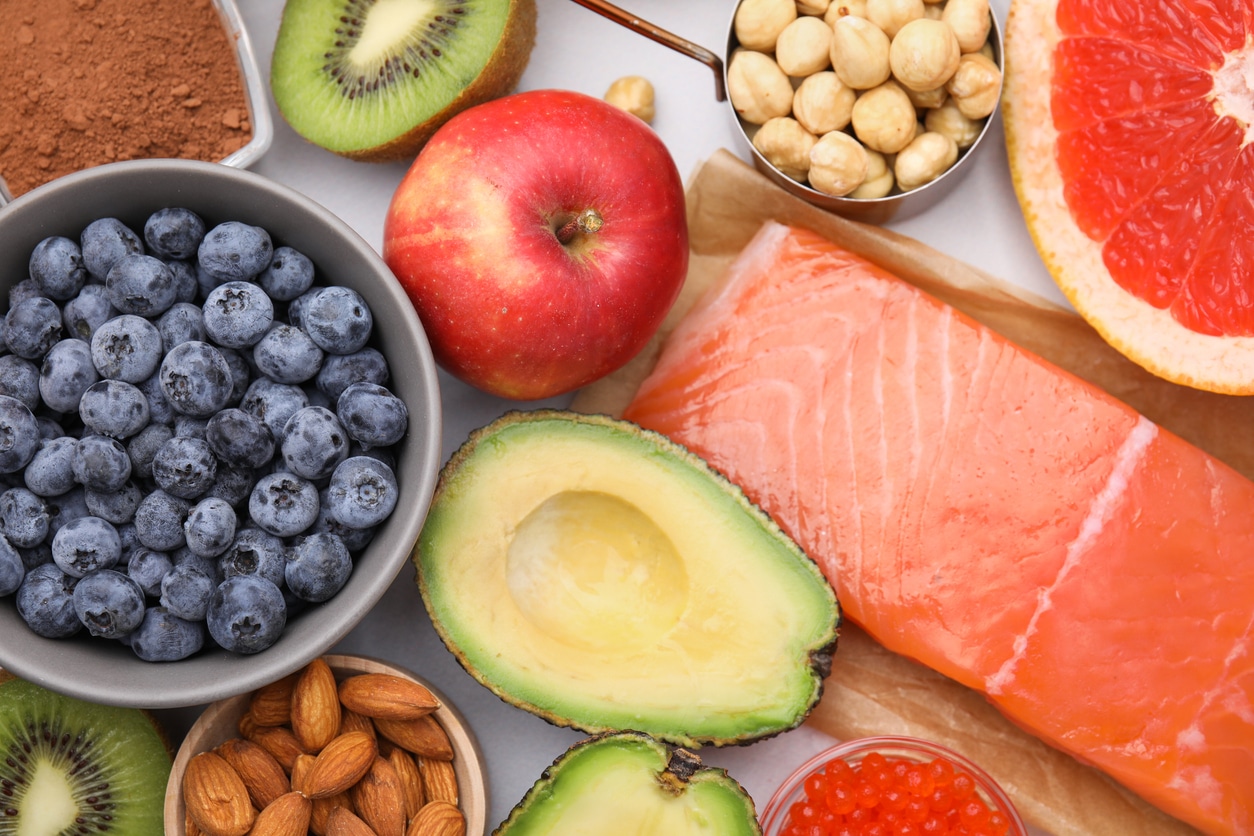When considering the impact of nutrition on overall health, most people focus on weight management, heart health or skin appearance. However, nutrition influences more than these commonly discussed areas. One often overlooked area is hearing health.
Let’s examine the connection between what you eat and how well you hear.
Vitamins and Minerals and Hearing Health

One 2019 study on the association of nutrition with hearing loss examined the link between specific vitamins and minerals and hearing loss prevention.
The study introduces the idea that an imbalance of free radicals and antioxidants (called oxidative stress) can damage the inner ear, leading to hearing loss. Antioxidants—specifically vitamins A, C and E—along with magnesium and selenium, work together to help inhibit free radical formation and protect the inner ear.
Vitamin B deficiency may also cause demyelination of the neurons in the cochlear nerve. During demyelination, the protective cover surrounding neurons gets damaged, disrupting signal transmission and leading to an increased risk of hearing loss and tinnitus.
These findings suggest that a diet rich in key minerals and vitamins A, C, E and B may lower your risk of hearing loss.
Food and Hearing Health
The same 2019 study also looks at the negative affects of poor nutrition in hearing health. It found that diets high in carbohydrates, saturated fats and cholesterol can cause damage to the blood supply in the cochlea, which may reduce hearing sensitivity.
Poor blood flow is a critical factor in hearing loss, and conditions like cardiovascular disease (which are influenced by diet) can harm the inner ear. However, fish and foods high in omega-3 polyunsaturated fatty acids may improve blood circulation in the cochlea and support hearing health.
What Should I Include in My Nutrition Plan?
While the study highlighted several vitamins and minerals that may support hearing health, it also emphasized that more research is needed to understand the connection between nutrition and hearing loss fully. In the meantime, focusing on a well-rounded, nutritious eating plan is wise.
Prioritize whole foods low in saturated fats and refined carbohydrates and rich in omega-3 polyunsaturated fatty acids, essential vitamins and minerals. You could even run to the Farmers Market of Grapevine for some healthy local produce. Some excellent food sources include:
- Vitamin A: spinach, eggs and yellow or orange vegetables
- Vitamin C: citrus fruits, tomatoes and tomato juice, potatoes, red or green peppers, broccoli and strawberries
- Vitamin E: nuts, seeds, vegetable oils, green leafy vegetables and fortified cereals
- Vitamin B: fish, meat, poultry, eggs, dairy products and fortified nutritional yeasts or breakfast cereals
- Magnesium: Green leafy vegetables, beans, nuts, seeds and whole grains
- Selenium: Brazil nuts, meat, seafood and poultry
- Omega-3s: chia seeds, walnuts, fatty fish and soybean or olive oils
Make an Appointment With Your Healthcare Provider
Before you make changes to your diet, schedule an appointment with your primary care provider or nutritionist. They will be able to identify a safe path toward better nutrition.
For more information on hearing loss, contact Heard It Through The Grapevine Audiology, PC today.